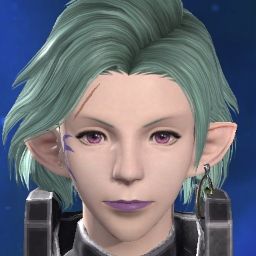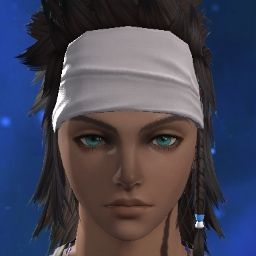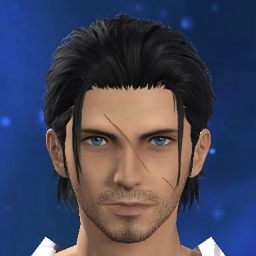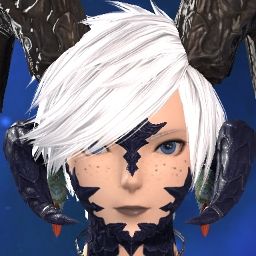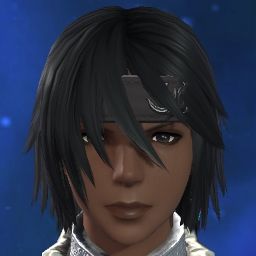Emet-Selch's position is one better argued by other stories tackling a similar idea: That what everyone perceives as reality is really a fantasy, and in order to awaken to the true reality they must destroy that fantasy world. Final Fantasy Tactics Advance had that story, even including the part where Marche is treated as the villain by several characters (and the fandom, natch) for his efforts to return the world to the way it was. And in another franchise entirely, The Legend of Zelda: Link's Awakening features a largely bare bones story in which Link must awaken a godlike being at the center of the game's setting (an island), knowing that the entire island and all its inhabitants will cease to exist when he succeeds. There's a brief moment in the plot where one of the antagonists tries to convince Link that he'll cease to exist as well, and the manga adaptations of the story play up the existential drama of Koholint Isle's people for all its worth.
To put it another way: In another story, Emet-Selch would actually be the hero struggling to save his people from a Lotus Eater Machine (insert TVTropes link here) forcing them to live out fantasy lives at the cost of their real selves. But that's a different story, and in FFXIV, he is instead the villain struggling to end the real lives of his long since reborn people to try and bring back the fantasy world of his past.
By contrast, "I think all of reality should get on with ceasing to be, and am going to do my part to make it happen" is... really not something that comes across as reasonable to anyone. Most people prefer being alive to not, and most people would hope for something after the end of all things. A Big Crunch following after the Big Freeze, leading into a new Big Bang. Even the one video game story I can think of to actually argue in favor of that—Dark Souls III—has its particular "let it all end" endings end with the hopeful observation of things beginning anew.
-
12-19-2021 12:09 AM #121Player
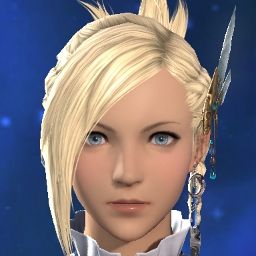
- Join Date
- May 2015
- Location
- Valnain
- Posts
- 826
- Character
- Wind-up Antecedent
- World
- Zalera
- Main Class
- Rogue Lv 100
(9)
-
12-19-2021 12:27 AM #122Player
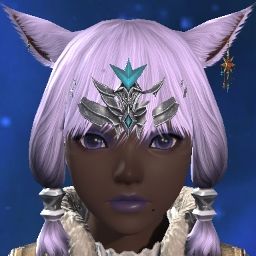
- Join Date
- Aug 2014
- Location
- Gridania
- Posts
- 1,150
- Character
- Qt Melon
- World
- Cactuar
- Main Class
- Bard Lv 100
See that's what's puzzling me because that's NOT what apparently happened. There was a whole dialog choice in Shadowbringers where you can talk with Emet and he says he was and has no reason to lie.
I don't think this part of why is actually over. What reason would he have to lie about it? This is why I suspect that there is a bit more to it than it being dismissed by the Lopprites and not to mention the entire themes of releasing people from being tempered. The Lopprites only explained that "they taught others to do it the wrong way"
Elpis Emet expressed horror that he would murder so many. So yes, I don't believe the line of reasoning is correct that people who did summon Zodiark weren't tempered.
His last line where he said if it were indistinguishable from the truth. I do believe may be that they may not have knowingly been tempered or he left out "tempered by design".(3)Last edited by QT_Melon; 12-19-2021 at 12:37 AM.
-
12-19-2021 08:09 AM #123Player
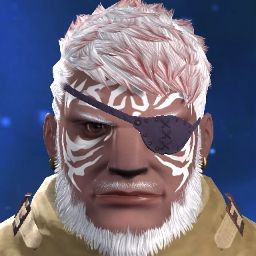
- Join Date
- Dec 2021
- Posts
- 29
- Character
- Axios Wavebreaker
- World
- Brynhildr
- Main Class
- Lancer Lv 16
Well from the perspective of Emet, and even the WoL since he went there back in Elpis we see a world that honestly looked a lot better, was better objectively speaking.
-Immortality
-Power of creation
-Society that focuses on fixing problems and improvement
-Literally being able to see the lifestream resulting in a society where death is not as scary, your soul just goes to rest, it never truly "dies" (Though I have a question now, can we destroy souls in this universe?)
-Researching many aspects of life, hence why I said dynamis would end up being the subject of research sooner or later just like we in real life have created tools to measure things we cannot see, so sundering was not required.
This isnt some delusion of the great perfect past like we see certain groups of people IRL fall victim to, this is an objectively better world that CAN come back if appropriate steps are taken including the rejoinings, this is an achievable feat.
Imagine your life being shattered into 14 pieces, all those 14 pieces are dumber, weaker and are a parody compared to your own full self, if you watch them live their lives you might even feel disgusted.
All these pieces have lives, they might be happy, even content though unlikely but due to having a part of your soul they are "living beings" in all regards.
Are you telling me you would prefer to keep this sundered parody of existence going instead of reunite all those soul parts to bring back the ORIGINAL, objectively better existence. That is the perspective of Emet and I absolutely agree with him, the parodies of the shards hold little value compared to what was.
And if you want to not feel bad about it, just remember the fact that those are FRACTURED SOULS, souls dont die, they will simply reunite and become the original soul, which just like in Ancient society never truly ceases to exist.
And to be honest, everytime I see Emet selch memes now I feel so sad because he was done dirty, he didnt deserve this
Meanwhile Fandaniel's beliefs are similar to hermes, extremely personal, he felt like a stranger among the people he was born both times, he ended up hating everyone around him for not being like him and both times tried to find solace in an external source, Xande or previously "what will other maybe more advanced civilizations believe", he never looked inward and that was the problem, because that is where you find the answer to such questions or more importantly the reason WHY you even NEED such answers to begin with.
I dont believe anyone is disagreeing with that statement, that is true, he was tempered, but if like the loporits said "if you summon such enormously powerful creature sbeing tempered is just a small "tug"" then that isnt the "tempered" we are imagining from what we ve seen the primals or towers do to the ones around them.
And his actions show it, the Ascians very focus from the beginning has been to restore their old world any means necessary, it might look chaotic evil from the perspective of the races who did not know the ancients, but everything was planned and calculated.(5)
-
12-19-2021 08:41 AM #124
-
12-19-2021 10:09 AM #125
They don't even know their timeline will continue to exist until after g'raha went to the past. With all the technology they gather from omega, CT, and Alexander, instead of trying to move past the disaster they go with the time travel route. All of this just to bet everything on the WoL, again.
What about other people who are against the idea? People who lives on other continent who doesn't even know who the WoL is and prefer if the Ironworks to use all that technology to combat the Black Rose? Screw them right?(3)
-
12-19-2021 02:12 PM #126Player
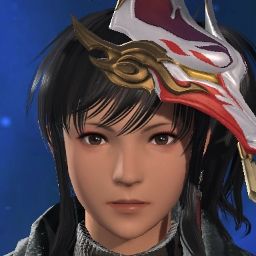
- Join Date
- Aug 2011
- Location
- Limsa Lominsa
- Posts
- 2,186
- Character
- Midi Ajihri
- World
- Hyperion
- Main Class
- Arcanist Lv 100
What other people? I thought it was established that unlike the partially aborted 7th calamity, the 8th was a full calamity and all of society crumbled. A large chunk if not the majority of people left are wandering bandits and it's a true apocalyptic scenario that hasn't changed for the better in hundreds of years and will take many hundreds more yet for the world to get back up on its feet again to a semblance of where it was before. On top of that, I thought it was insinuated that another calamity would leave Hydaelyn so weak that she wouldn't be able to prepare as much for potential upcoming calamities. The end result would be the Ascians in that timeline potentially winning. The actions of the Ironworks have stirred Midgardsormr though, and he's going to lead humanity from that point forward and that is probably the sole light left for them, but we may never know how that ends up if SE never revisits it.
Additionally, there's nothing that could be done about Black Rose by this point. The Calamity had already come and gone and since the end of the story says they're in a new Astral Era, I'm sure it's assumed that Black Rose has already dissipated. Black Rose was already stated to have destroyed the Garlean Empire 200 years ago during the Calamity so who is going to be continuously producing and releasing it? And in a world with no more countries and severely limited communications, how much of the world even knows who the Ironworks are?
While there are similarities between the Ironworks and the Ascians, but that's not to say they're exactly the same. The Ironworks' plan potentially (but didn't) could have sacrificed a world that was already doomed. The Ascians' plan involved knowingly and purposefully sacrificing a world that had just been given new life. The Ascians' plan also involved an aether-hungry god of their creation who bends those near it to His will. A new Amaurot would revolve around Zodiark and it would not be the same Amaurot that existed before. To think otherwise is being naive. In all of the scenes of Amaurot and Elpis, we never see the Ancients gather together in darkness and raise their hands up in prayer to the "one true god", yet we see them do that in ARR.
The lopporits may have said it causes a "tug", but Emet-Selch outright states he is tempered and the dialogue of the others does not sound like sane individuals possessed of their complete will.
Nabriales: "Witness the terrible might of a true servant of Zodiark!" "Insatiable hunger of the void! Devour all light and return this world to perfect darkness!" "Writhing powers of ruination! From the deepest pits of the abyss I summon thee!"(11)
-
12-19-2021 04:56 PM #127Player

- Join Date
- Feb 2019
- Location
- Ul’dah
- Posts
- 822
- Character
- Eara Grace
- World
- Faerie
- Main Class
- Paladin Lv 100
Yet just as many if not more donated resources and supported the cause even as the world burned down around them. The people who left or disagreed did so not because they thought it necessary to protect themselves, but that what the ironworks was attempting was impossible and pointless and thus a waste of resources.
And no, I never said comparisons couldn’t be drawn. My issue is with portraying the two as morally or ethical equivalent. They are not.(4)
-
12-19-2021 11:28 PM #128
In the german version Hermes says that the difference between such beings is the soul but that the Ancients cant create one thus its bascially RNG if a creation gets one.
And even though we do have a soul (even if its sundered) Hythlo and Emet still called us an It for quite some time at the beginning and most Ancients there did see us as just an familiar. Basically if you are not a born Ancient you are in some ways bellow them.
So I can fully see that they would still "kill" a concept even if it had a soul.(3)
-
12-20-2021 01:38 AM #129Player
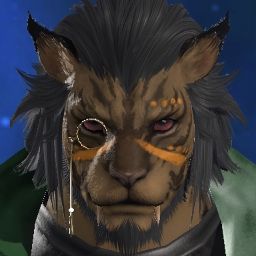
- Join Date
- Sep 2013
- Location
- The Hermit's Hovel
- Posts
- 3,684
- Character
- Trpimir Ratyasch
- World
- Lamia
- Main Class
- Gunbreaker Lv 100
Now that I don't have a splitting caffeine headache...
On the point of Fandaniel's ideals, they essentially boil down to nihilism. The thing about nihilism is that it is a purely objective philosophy - there is no objective meaning to anything. Everything you've ever known and loved will one day be so much dust in the wind. That's just a starting point, though; bereft of objective meaning people must look inward for a subjective meaning to their lives, and deciding the meaning of your existence is to hasten along the oblivion of all things is popularly decided to be an awful raison d'etre.
"Concept" is just a template for a given creation. Whether or not it gets a soul is dependent on whether or not said creation works within the laws of nature; living things like animals get souls, while decidedly unnatural things like elemental sprites don't. Such living things will be repurposed (put down) if they don't meet the Ancients' standards for being released into the ecosystem from Elpis, such as the water-leaning charybdis that was about to be put down for both its aberrant nature and being afraid to fly, as well as the aggressive fire-aspected Fenrir things whose exact names I forget. These are living beings with thoughts and feelings of their own, but the Ancients looked at them from a purely objective standpoint and did not sympathize with them except for Hermes. "It's all just aether, so who cares?"
The phoenix in Through His Eyes is meant to be an ironic representation of Emet-Selch's future self: "a soul burdened with regret... [raging] against the pull of the Underworld; [c]onsumed by the fear of death, [thrashing] blindly about, [knowing] only pain and suffering and [inflicting] the same upon others" is a very accurate description of Emet-Selch as we meet him in Shadowbringers.
While the loporrits do tell us that a primal on Zodiark's scale would cause a "tug," Emet-Selch himself says he and the Convocation were tempered when Zodiark was summoned. My take on it is that the summoning arts they taught the beast tribes greatly played up the zealotry of tempered followers, but summons will still temper people even using creation magic proper depending on the scale - it just won't make them slavishly obedient zealots.(4)Trpimir Ratyasch's Way Status (7.2 - End)
[ ]LOST [ ]NOT LOST [X]RAGING OVER DEMIATMA RNG
"There is no hope in stubbornly clinging to the past. It is our duty to face the future and march onward, not retreat inward." -Sovetsky Soyuz, Azur Lane: Snowrealm Peregrination
-
12-20-2021 01:42 AM #130
They're saying that because they've literally never seen something like you before in their lives so they used the evidence in front of them to make a determination as to what you were. They say you're a familiar because you fit all the descriptions of being a familiar. It's no different than if you saw an animal that looked like a housecat and assumed it was a housecat. They're not looking down on you, most of the ancients in the zone treat you just fine (with a few exceptions but lets not forget that people in the modern world sometimes treat you like shit as well and you're their literal savior.) And also, your character is literally telling them in certain quests that you're "Azem's familiar" so you can't blame them for going with what you literally told them.
There's a tales from the shadows that explains the soul thing more, basically a creation that falls inline with the laws of nature can get a soul. So if the ancients want something to have a soul, they try and create something that works with those laws.(4)



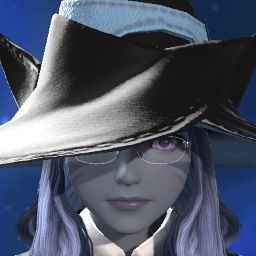

 Reply With Quote
Reply With Quote
